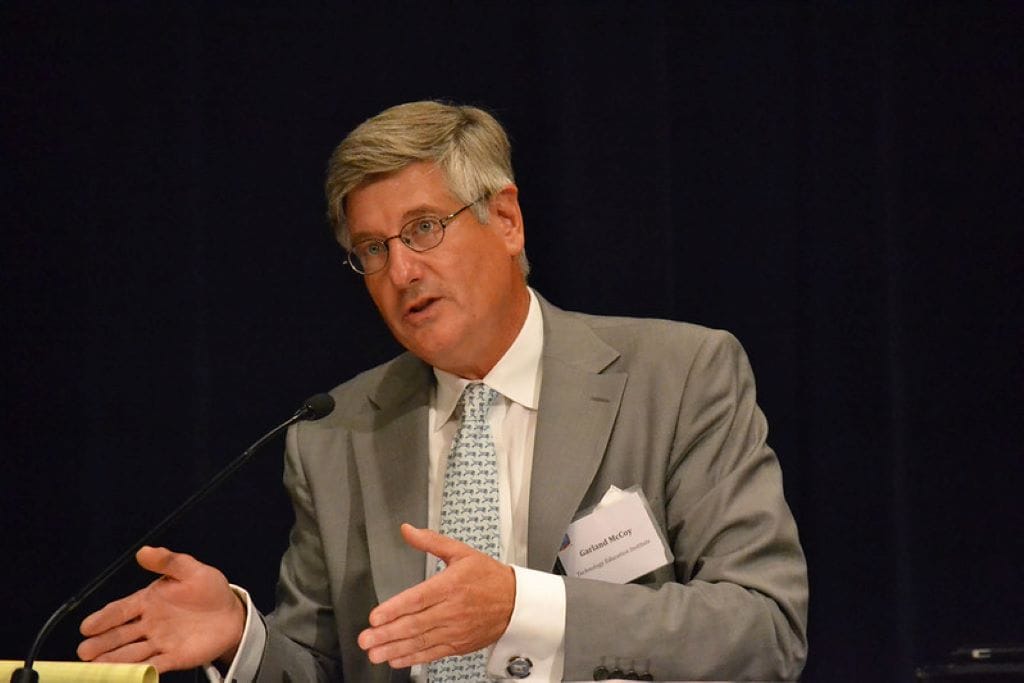Garland McCoy: On Maps, States Need a Digital Sheriff to Fend for Themselves
The day the music stopped for rural America with the release of FCC’s “new” map.

State Broadband Officials are justifiably bewildered over how Washington, DC operates. In just the last week, NTIA’s BEAD program director signaled that the “new” FCC Map released in November of 2022 will not be the only map — nor the primary map — consulted when determining the distribution of BEAD funding to a state. Not surprisingly, he had to immediately walk the statement back.
At the same time, we’ve seen FCC Chair Jessica Rosenworcel plead with the states to help fix the “new” FCC map. She also recently announced that the FCC is launching a campaign to identify and hold ISPs accountable if they have provided inflated network service speeds for the “new” FCC map.
One could conclude that officials in Washington view citizens outside of D.C. as intellectually challenged. Why? It’s been well known for many years that the FCC allows — and indeed encourages — ISPs to post their advertised networks speeds (not their real network service speeds) on the FCC maps, which is why the “new” FCC map continues to be flawed and mostly indistinguishable from the old FCC maps (hence my use of quotation marks).
None of this frankly surprises me given we’ve seen this movie before with each update of the FCC maps. Yet, I held out a glimmer of hope that this time would be different. This time the FCC received clear directions as part of the Broadband Deployment Accuracy and Technological Availability (DATA) Act of 2020 – legislation that specifically instructed the FCC to produce more accurate maps once and for all.
Notably, the Broadband DATA Act drew deep and broad bipartisan support in the otherwise hyper-partisan nation’s capital. In the Senate, the DATA Act boasted 70 Senate cosponsors, which made it one of the most bipartisan pieces of legislation enacted in the 116th Congress. It became Public Law 116-130 in March 2020 and called on the FCC to set up a process to collect “crowdsourced” data directly from citizens “on an ongoing basis” to “ensure that the Broadband Map is granular and accurate.”
These new and improved maps would then guide federal broadband deployment dollars to those areas of the country with no or subpar connectivity. That was music to the ears of tens of millions of rural Americans who still lack broadband. However, that music stopped on November 18, 2022 when the FCC released its “new” and inaccurate maps.
States must now look to the future and look to themselves to ensure they are well-positioned for additional broadband infrastructure funding that will be forthcoming from a variety of Federal agencies, untethered to the FCC Broadband Map. It’s time for states to get their own houses in order by ensuring that their respective broadband maps are supported by a statewide device-driven network metering program. A network metering program would allow states to validate their broadband data in a secure way and keep it up-to-date. It would also give states the ironclad data needed to support audits of ISP self-reported data, the FCC-mandated ISP broadband labels, and compliance with publicly funded broadband infrastructure contracts.
States need someone armed with security, industry-standard network monitoring
States need in effect, a “Digital Sheriff” who is armed with secure, industry-standard network monitoring/metering devices to do for broadband what is already done for other important essential services and commodities, e.g., the metering of electricity, natural gas, water to the home, and the gasoline you pump into your car. All are independently metered for the consumer’s protection. Somehow, as important as it is, broadband has escaped this same level of accountability. States should now step up and add this much needed accountability for broadband.
I do see a silver lining in all of this. The “new” FCC map and controversies around the CostQuest Fabric rollout have opened the eyes of many in the broadband stakeholder community. For example, it is spurring efforts to build an opensource Fabric data site that would provide this valuable information to the general public.
It reminds me of Craigslist and its genesis in 1996 as a free, unencumbered classified advertising website, while newspapers had charged for this service for the last century. Likewise, the latest FCC map episode has also focused attention on the need to meter broadband, as an essential service, the same way other essential services are metered for a customer’s protection and the public good.
We may very well be witnessing the final gasps of the FCC’s attempt to build a credible National Broadband Map. But from its ashes, states now have the opportunity to rise up and take on the responsibility of providing an accurate accounting – and in doing so, truly close the nation’s broadband gap.
If you want a citizen-centric partner in these validation and network metering initiatives, please reach out to us. PAgCASA (pagcasa.org) is a non-profit organization focused on promoting rural prosperity, utilizing industry standard network monitoring/metering devices, litigation-ready methodologies, and an expert team and partnerships to accomplish our goals.
Garland T. McCoy, Co-Founder and Executive Director of Precision Ag Connectivity and Accuracy Stakeholder Alliance, is a long-time non-profit veteran in the fields of technology and telecommunication policy having served as Founder and CEO of the Technology Education Institute. Garland was recently an adjunct professor at Syracuse University’s iSchool, teaching information policy and decision making, and can be reached at garland.mccoy@pagcasa.org. This piece is exclusive to Broadband Breakfast.
Broadband Breakfast accepts commentary from informed observers of the broadband scene. Please send pieces to commentary@breakfast.media. The views reflected in Expert Opinion pieces do not necessarily reflect the views of Broadband Breakfast and Breakfast Media LLC.










